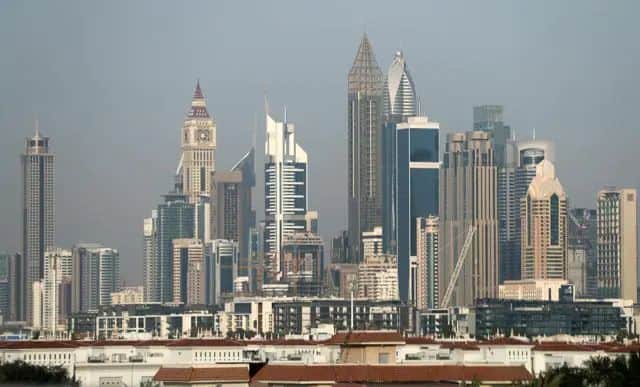Private banking in the Gulf Cooperation Council (GCC) countries is thriving due to an increasing number of Ultra High Net Worth Individuals (UHNWIs) and High Net Worth individuals (HNWIs) despite the impact of COVID-19 in the region.
While the number of UHNWIs and HNWIs have decreased by 11.3 percent and 10.1 percent in 2020 in the GCC due to pandemics respectively, this decline was not uniform across all GCC countries.
In Saudi Arabia, the number of UHNWIs increased by 9.6 percent, the 10th fastest growth rate globally. In fact, the Kingdom’s UHNWI population has grown by 227 percent over the last five years, the fastest growth rate globally over this period, according to a report released by Knight Frank Middle East in March this year.
Approximately $440 billion of Middle Eastern HNWI wealth is tied up with wealth management companies and 25% of this wealth is managed by the largest wealth management center in the UAE, the report said.
Why private banking?
These UNHWIs and HNWIs prefer personalized banking services and one-stop shopping to manage their assets and this has come as a boon to the private banking industry. The main reason for this preference is their financial needs are more complex than the retail bank customers.
It is here the private banking sector offers a variety of financial services such as investment management to trust and estate planning to these high-profile clients.
Another reason for the UHNWIs preferring private banking is that the services offered to them remain largely confidential.
In private banking, the clients are assigned devoted experts who will be their single point of contact for their financial issues. Most of these accounts receive returns on their investments that outperform the market.
Private banking can also yield returns up to 30 percent annually but range more typically from seven percent to 13 percent.
UAE has the largest number of HNWIs
The Middle East is the home for nearly 390,000 HNWIs till December 2020 compared with 414,634 millionaires recorded in 2019, according to a report published by South Africa-based research firm New World Wealth.
The report also said that among them, 146,600 are in the UAE (83,400), Saudi Arabia (40,700) and Qatar (22,500) in the GCC region alone holding US$1.614 trillion in assets. In Kuwait, the number of HNWIs was 188,000 at the end of 2018.
Compared with 2019, there has been a drop of 18 percent in HNWIs due to the pandemic in 2020. However, cryptocurrencies offer them a good chance to regain their lost wealth by diversifying their investment portfolio.
The total private wealth held by the high-net-worth individuals (HNWIs) in the UAE was US$870 billion followed by US$542 billion in Saudi Arabia and US$202 billion in Qatar in the GCC region by December 2020.
A report from Boston Consulting Group (BCG) said that nearly 69 percent of Bahrain’s wealth was held by millionaires in 2019. The number of millionaires in Bahrain was expected to grow by 1.1 percent annually over the coming years.
The report entitled “Global Wealth Report 2020: The Future of Wealth Management-A CEO’s Agenda” did not specify their numbers. Bahrain’s personal wealth in the Middle East and Africa grew by 4.4 percent annually to $100 billion between 2014 and 2019, the report added.
Centre of wealth
Abu Dhabi Global Market (ADGM), which has over $1 trillion assets under management, has emerged as one of the best international financial centers in the world. It has one of the highest inflows of HNWIs from the EU, North America, GCC, China and India.
It is also a perfect location for private banking and wealth management entities with a focus on the needs of UHNWIs and UHNIs and families who demand bespoke financial services with a high degree of customized advice and personal relationship management.
Sohar International (Oman), Bank Al Jazira Private Banking (Saudi Arabia), Qatar First Private Banking and Aventicum Capital Management (both in Qatar), Kuwait Finance House (Bahrain) and Adeem Investment Company (Kuwait) are also offering private banking and wealth management services to the HNWIs.
One of the oldest financial institutions in Europe, Liechtensteinische Landesbank (LLB) has launched its operations by opening its office in Dubai International Financial Centre (DIFC) in 2005. An expert team is dedicated to the Middle Eastern market and provides research insights from European and US markets to the region.

